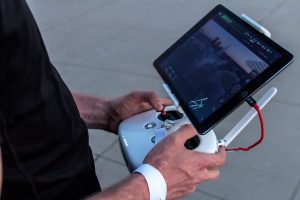Neural Data Rights: Brain-Tech Protection
In recent years, the rapid advancements in technology have led to the development of new brain-tech devices and techniques that allow for the collection and analysis of neural data. This has brought about a new concept: neural data rights. As we continue to make strides in brain-tech, it becomes increasingly important to consider the ethical and legal implications of collecting and using neural data. In this article, we will discuss the emerging concept of neural data rights and the need for brain-tech protection.
The Rise of Brain-Tech and Neural Data
Brain-tech, also known as neurotechnology, refers to any technology that interacts with the human brain or nervous system. It encompasses a wide range of devices and techniques, including brain-computer interfaces, brain implants, and brain wave monitoring. These innovations have revolutionized fields such as medicine, education, and entertainment, allowing for unprecedented levels of understanding and manipulation of the human brain.
One of the key components of brain-tech is neural data – the electrical impulses and patterns that are generated by the brain. This data is collected through various brain-tech devices and can provide valuable insights into a person’s thoughts, feelings, and behavior. However, this also raises concerns about privacy and ownership of this information.
Understanding Neural Data Rights
The concept of neural data rights is still in its nascent stages, but it refers to the idea that individuals have a right to control and protect their own neural data. This includes the data collected by brain-tech devices, as well as the inferences and predictions made from this data. Essentially, it is about giving people the power to decide how their brain data is used and shared.
Currently, there are no specific laws or regulations in place regarding neural data rights. The closest existing laws are those related to medical data and personal information. However, these do not fully address the unique considerations of brain data and the potential for invasive technologies. As more and more brain-tech devices become available and accessible, there is a pressing need to establish guidelines and protections for neural data.
The Need for Brain-Tech Protection
The concerns surrounding neural data rights are not unfounded. In today’s data-driven world, information is power. And when it comes to the most intimate and personal type of data – our thoughts and emotions – it is crucial that we have control over who has access to it. This is especially important in the context of brain-tech, where the potential for misuse and manipulation of neural data is a real possibility.
Without proper protections and regulations, there are several potential dangers associated with neural data. For one, unauthorized access to brain data could lead to violation of privacy and potential exploitation. It could also give rise to discrimination and stigmatization, as certain patterns of neural data may be correlated with certain traits or conditions. Additionally, there is also the risk of data breaches and hacking, which could have far-reaching consequences for individuals and society as a whole.
The Future of Neural Data Rights
In order to ensure the responsible and ethical use of brain-tech and neural data, it is crucial to establish a framework for neural data rights. This will require collaboration between government agencies, tech companies, and other stakeholders to develop comprehensive laws and regulations. It will also be important for individuals to educate themselves about their rights and actively advocate for their protection.
In conclusion, as brain-tech continues to advance and become more integrated into our daily lives, it is essential that we address the issue of neural data rights. Without proper safeguards, the potential risks associated with this technology could outweigh its benefits. By establishing comprehensive protections for neural data, we can pave the way for a responsible and ethical future for brain-tech. Let us not forget – our thoughts and emotions are our own, and it is our right to protect them.










